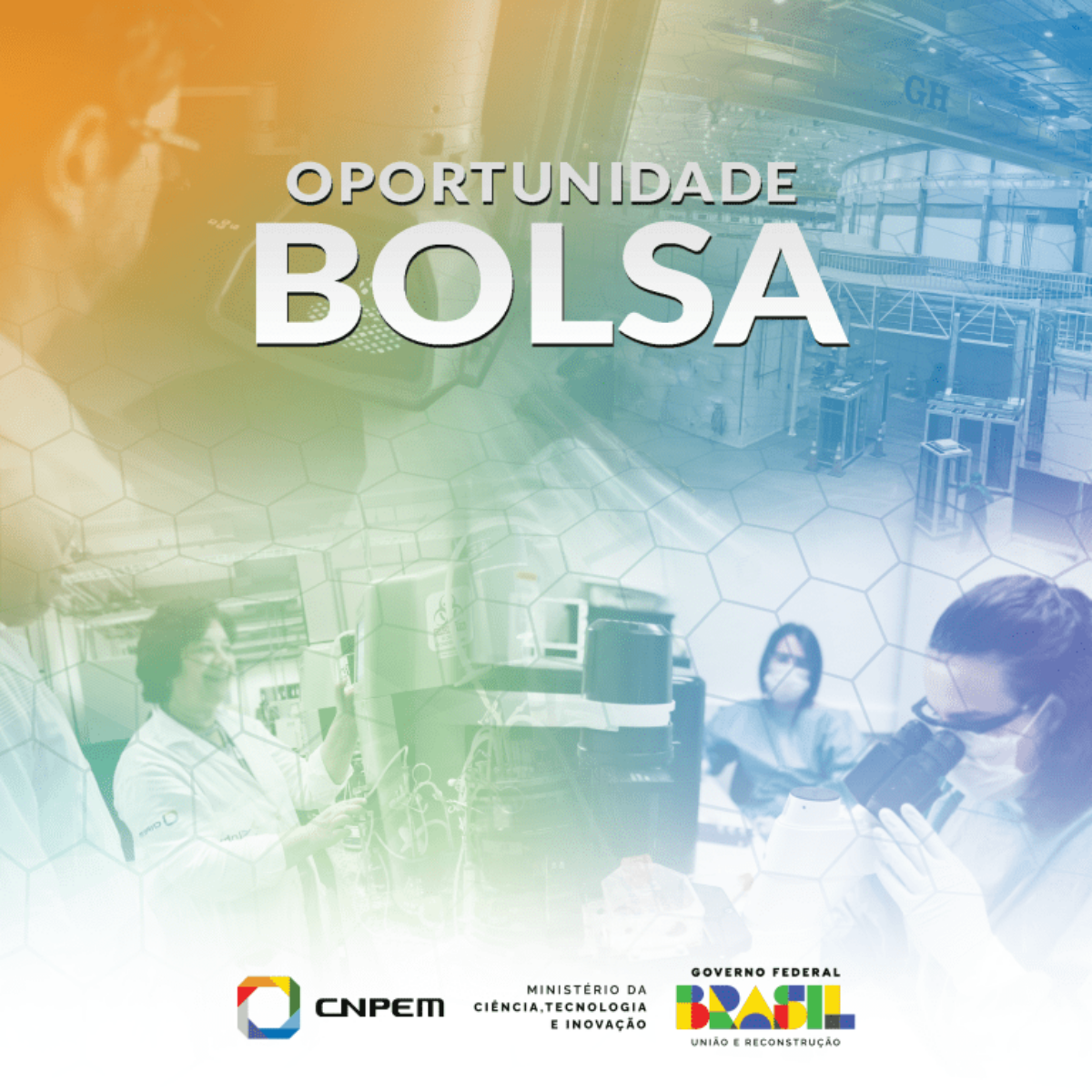
The Brazilian Center for Research in Energy and Materials (CNPEM) has a research vacancy, with a scholarship from the São Paulo Research Foundation (FAPESP), in the Technical Training Level 5 (TT5) category.
The opportunity is linked to a FAPESP Young Researcher project No. 2019/14017-9. Applications may be submitted between 11/13/2024 and 12/20/2024 – see details below.
The project will be developed in the synchrotron infrared advanced microscopy area, planned to operate at the IMBUIA-micro station of Sirius, the Brazilian particle accelerator. The project involves developments in:
The professional who demonstrates capabilities in analytical and numerical models developing and integrating, conducting bibliographic research and monitoring projects in the context of transdisciplinary systems for scientific instrumentation, integrating optics skills, mechatronic instrumentation and reconstructed data processing, will be admitted as a scholarship holder.
The approved candidate will work in constant integration with other Sirius groups, including working on project requirements in the Orion lines context.
Candidates interested in applying for the scholarship must have a completed PhD or at least five years of professional or academic experience after graduation. Researchers with a degree in physical engineering, mathematics or applied physics, computer science, mechatronics engineering, aerospace engineering and related areas are eligible to apply.
Candidates must also meet the FAPESP requirements described in the Technical Training link, including the absence of failures in the undergraduate academic record. The approved person must also have 40 hours per week to dedicate to the project.
It is desirable that candidates have basic knowledge or ability to engage in mechanical and analytical modeling of optical/optomechanical elements and an affinity with multiphysics modeling. Knowledge of repository managers and version control is desirable.
Knowledge in optical simulation and modeling tools, such as Zemax/Shadow/Aasys/srw, in addition to precision engineering and metrology concepts, will be considered as differentials. Experience or affinity with programming languages and scientific packages such as Python, C, R, Julia, Matlab or similar, as well as related optimization packages will also be differentiators that will facilitate communication between partner groups.
Finally, prior experience in assembling or operating optical setups for materials analysis will be important for the activities development.
Scholarship value: R$ 9,320.00 as defined by FAPESP (https://fapesp.br/16881/tabela-de-valores-de-bolsas-no-pais-a-partir-de-01082024).
Scholarship duration: 12 months duration from February 3rd, 2025, with a renewal possibility for the same period.
Interested parties should send their CV (Lattes format), complete undergraduate transcript and interest letter, all in PDF format, to the email [APPLICATION PERIOD CLOSED]. Applications must be submitted until December 20th, 2024.
The Brazilian Center for Research in Energy and Materials (CNPEM) houses a cutting-edge, multi-user and multidisciplinary scientific environment, with actions in different areas of the Brazilian Science, Technology and Innovation System. A Social Organization supervised by the Ministry of Science, Technology and Innovation (MCTI), CNPEM is driven by research that impacts the areas of health, energy, renewable materials and sustainability. Responsible for Sirius, the largest scientific equipment ever built in the country, CNPEM currently develops the Orion project, a laboratory complex for advanced research on pathogens. Highly specialized science and engineering teams, sophisticated infrastructures open to the scientific community, strategic lines of investigation, innovative projects with the productive sector and training of researchers and students constitute the pillars of this unique center in the country, capable of acting as a bridge between knowledge and innovation. The CNPEM is responsible for the operation of the Brazilian Synchrotron Light Laboratory (LNLS), the Brazilian Biosciences National Laboratory (LNBio), the Brazilian Nanotechnology National Laboratory (LNNano) and the Brazilian Biorenewables National Laboratory (LNBR), as well as for the Ilum School of Science, a bachelor’s degree course in Science and Technology, supported by the Ministry of Education (MEC).
Scientific instrumentation developed for Sirius was a highlight of the 2024 edition of the event, held in Germany.
Representatives from respected Chinese research institution signed the agreement at the CNPEM campus